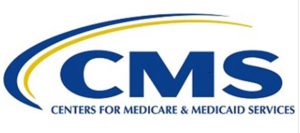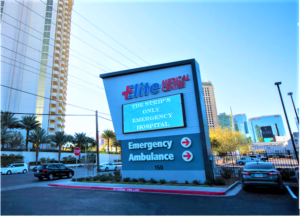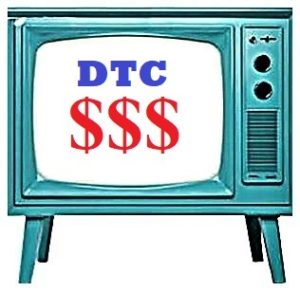- Robin Hood to rescue of rural hospitals? New math promised on Medicare payments (lasvegassun.com)
As rural hospital closures roil the country, some states are banking on a Trump administration proposal to change the way hospital payments are calculated to rescue them...The goal of the proposal, unveiled by Centers for Medicare & Medicaid Services Administrator Seema Verma...is to bump up Medicare’s reimbursements to rural hospitals, some of which receive the lowest rates in the nation...By law, any proposed changes in the calculation of Medicare payments must be budget-neutral; in other words, the federal government can’t spend more money than previously allocated. That would mean any change would have a Robin Hood-like effect: increasing payments to some hospitals and decreasing them to others...READ MORE
- Colorado Places Bets On Medical Marijuana To Help Curb Opioid Problem (techtimes.com)
Colorado passed a new law to help slow down the ongoing opioid epidemic in the United States. Instead of giving an opioid prescription, doctors can instead recommend the use of medical marijuana to alleviate symptoms of their conditions...A bill that allows doctors to prescribe medical marijuana to patients instead of opioid has been signed into law in Colorado....Governor Jared Polis signed Senate Bill 13, which aims to help curb opioid addiction. The law will be effective starting Aug. 12...READ MORE
- NACDS and NCPA Issue Joint Statement on Drug Pricing Rule (drugtopics.com)
The National Community Pharmacists Association and the National Association of Chain Drug Stores issued a joint statement expressing their frustration at the release of HHS’s final drug pricing rule for Medicare and Medicaid. The final version of the rule fails to reform pharmacy direct and indirect remuneration fees...READ MORE
- Not So Fast on Ending Rebates for Prescription Drugs (realclearhealth.com)
Give President Trump credit for acting on his promise to bring down prices for prescription drugs. But one policy idea his administration has proposed needs a second look...The Department of Health and Human Services has proposed a rule that would end rebates that drug companies pay to Part D and Medicaid-managed organizations for the prescription drug equivalent of preferential shelf placement and instead require savings from any such rebates be passed along to consumers... if this regulation goes final...it may even mean lower prices for some drugs in some cases...But Big Pharma...will realize a windfall of up $100 billion per year...what Part D participants pay in premiums and taxpayers shell out for Medicare and Medicaid – would go up...READ MORE
- Co-owner, ex-employee of pharmacy in U.S. meningitis outbreak acquitted (reuters.com)
A federal judge...tossed the convictions of a co-owner and former employee of a Massachusetts compounding pharmacy accused of conspiring to help it evade regulatory oversight before its drugs caused a deadly 2012 fungal meningitis outbreak...U.S. District Judge Richard Stearns in Boston ruled that New England Compounding Center co-owner Gregory Conigliaro and former employee Sharon Carter did not have fair warning their actions could subject them to prosecution...Jurors convicted Conigliaro and Carter of conspiring to defraud the U.S. Food and Drug Administration by misleading it into thinking NECC was operating like a conventional pharmacy and not like a drug manufacturer...State-regulated compounding pharmacies produce customized drugs pursuant to patient-specific prescriptions to address individual needs. But prosecutors said NECC was actually a drug manufacturer making medications in bulk...READ MORE
- Exclusive: Canada told drugmakers it would limit scope of some new price rules (reuters.com)
The Canadian government has assured the pharmaceutical industry that new features of its plan to cut drug costs would apply only to new medicines, Health Canada said…The new features of the government’s proposed regulations, which would take into account cost-effectiveness of medicines and their likely impact on government budgets, would be limited to new drugs, Health Canada told Innovative Medicines Canada and BIOTECanada, the patented drug industry’s main lobby groups...The original cost-benefit analysis estimated the new regulations would cost drugmakers C$8.6 billion ($6.4 billion) over 10 years. As an alternative to the proposed changes, drugmakers offered to voluntarily give up C$8.6 billion in revenue over the same period...Exactly how much the new rules will reduce prices depends on implementation details that have not yet been decided...READ MORE
- New freestanding Clark County ERs must accept Medicare, Medicaid (reviewjournal.com)
New hospitals or medical centers that offer or advertise emergency services in Clark County will need to accept Medicare and Medicaid, starting this summer...Hospitals that obtain a business license after June 1 will be subject to the new rule. They must also be certified by the Centers for Medicare and Medicaid Services and be in compliance with federal law that requires emergency departments to treat patients without regard for insurance or ability to pay...The new stipulations...come amid concerns over the emergence of freestanding ERs, or microhospitals, that are not part of existing hospital networks. Those medical facilities are licensed through the state, but lack accreditation, do not accept Medicare and Medicaid and are not subject to the same reporting requirements and other standards...READ MORE
- U.S. drug agency to ask Congress to classify illicit fentanyl like heroin (reuters.com)
Illicit chemical knock-offs of the extremely potent opioid fentanyl would be put permanently in the same legal class as heroin to boost prosecutions of traffickers and makers of the drugs, under a proposal to be unveiled...by the U.S. Drug Enforcement Administration...The new classification is meant to help fight a proliferation of chemical look-alikes of fentanyl, known as analogues...DEA Acting Chief Operations Officer Greg Cherundolo is set to go before a Senate committee...to propose that Congress make the measure permanent so that cases against various analogues will not be undercut when the temporary ban lapses...READ MORE
- EDITORIAL: Nevada moves to stop innovative medical facilities (reviewjournal.com)Lawmakers hear bill to require tourist-focused microhospital to accept Medicare, Medicaid (thenevadaindependent.com)
In a cut-throat, protectionist sort of way, it makes sense that Nevada’s existing medical providers want to handicap new competitors. But that doesn’t mean elected officials should be doing their bidding...Elite Medical Center provides hospital and emergency room services near the Strip. It’s a small facility trying to fill an overlooked niche in the market — tourists. It treats an average of 30 patients a day. It boasts that patients see a doctor within minutes of arrival...Most Las Vegas residents would likely have never heard of it, except its competitors keep attacking the facility. Other hospitals are upset that Elite Medical Center doesn’t accept Medicaid and Medicare as payment methods...But why would hospitals care if a competitor didn’t accept certain payment methods? That would seem like an opportunity to lure those customers...The medical field needs innovation. Nevada won’t get it by stifling providers who dare to do things differently...READ MORE
- U.S. government to require drugmakers to show prices in TV ads (reuters.com)Price Check On Drug Ads: Would Revealing Costs Help Patients Control Spending? (khn.org)Now that Trump's forced drug prices into ads, what's next? Lawsuits and compliance, for two (fiercepharma.com)
The Trump administration...said it will require drugmakers to disclose the list price of prescription drugs in direct-to-consumer television advertisements, part of the government’s efforts to lower costs for U.S. consumers...The list price would be included if it is equal to or greater than $35 for a month’s supply or the usual course of therapy. The U.S. Department of Health and Human Services said that the 10 most commonly advertised drugs have list prices ranging from $488 to $16,938 per month or usual course of therapy...TV advertising requirement would work to drive down list prices alongside a recently proposed rule aimed at requiring that drug rebates, or discounts, be passed on to Medicare patients when they buy the drugs...The advertising rule...was originally suggested as part of President Donald Trump’s “blueprint” to lower U.S. drug prices...READ MORE









